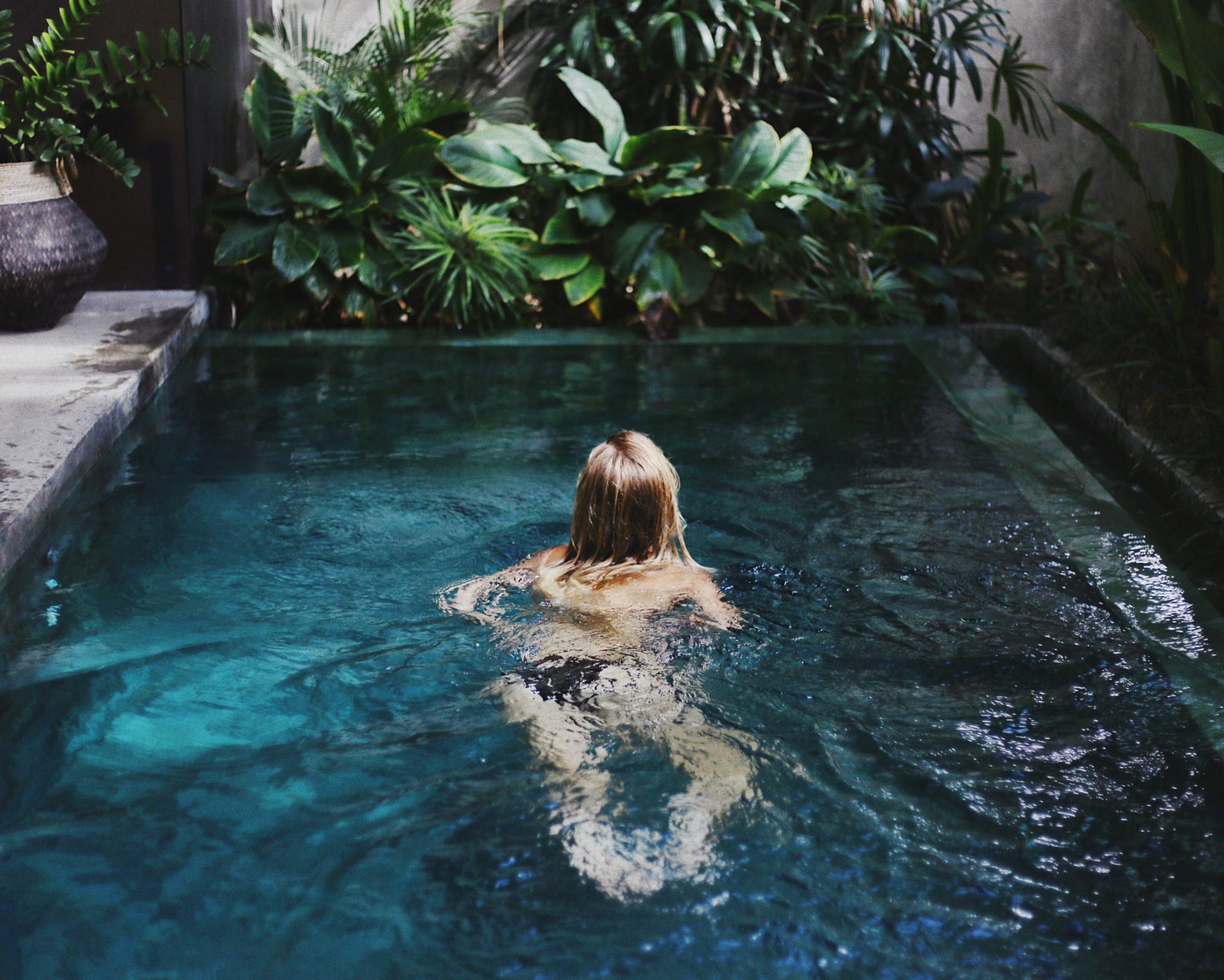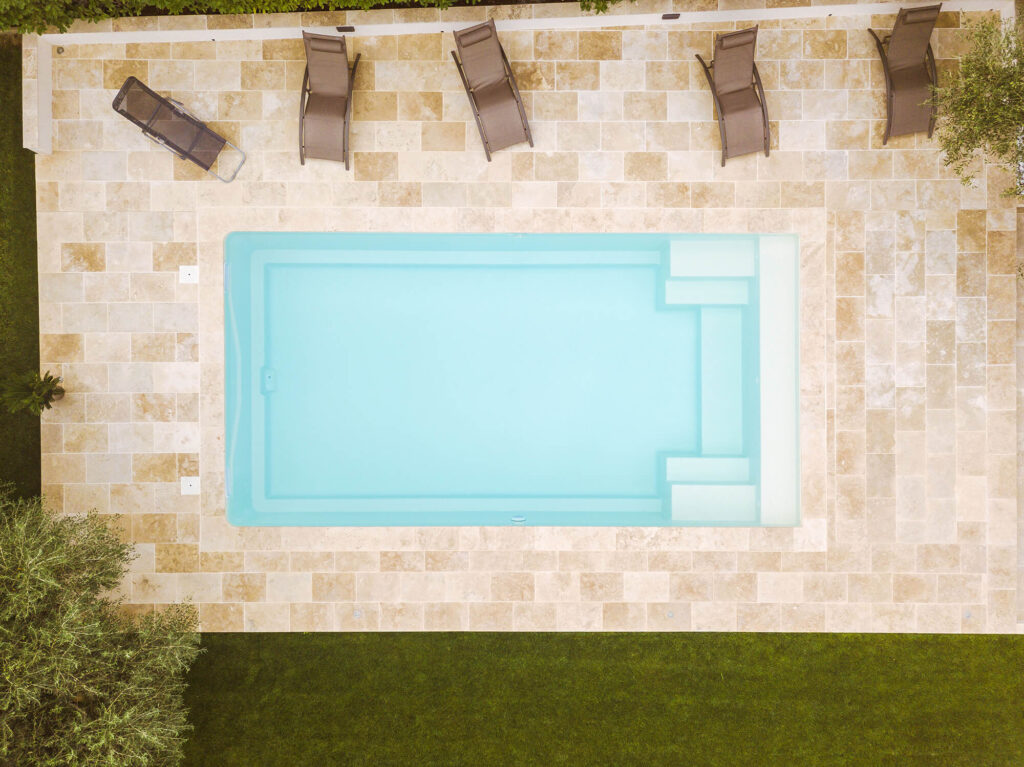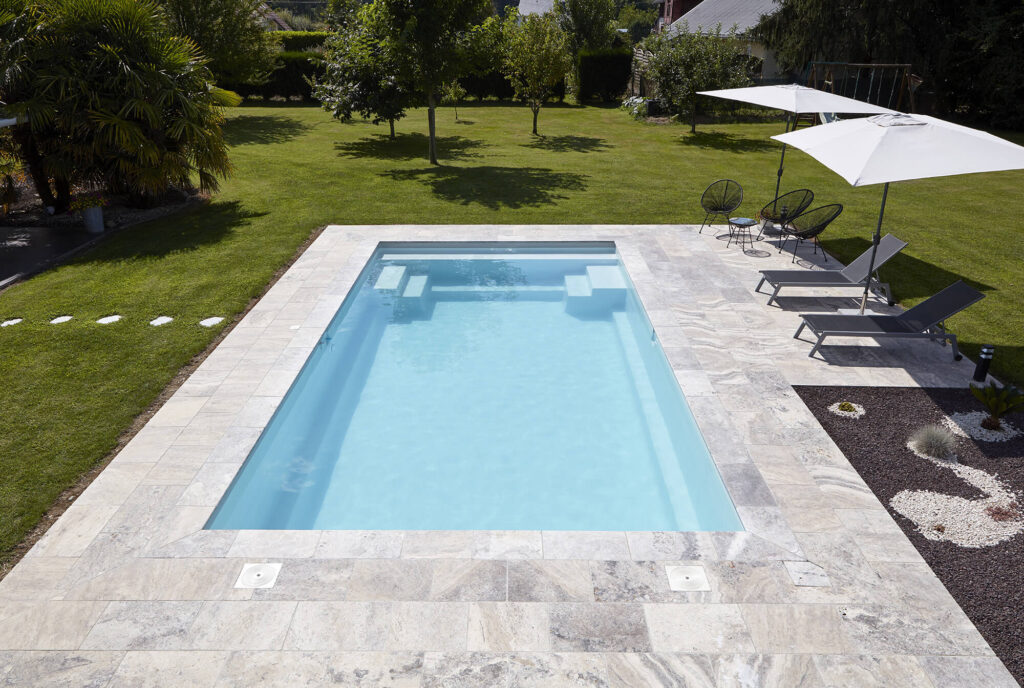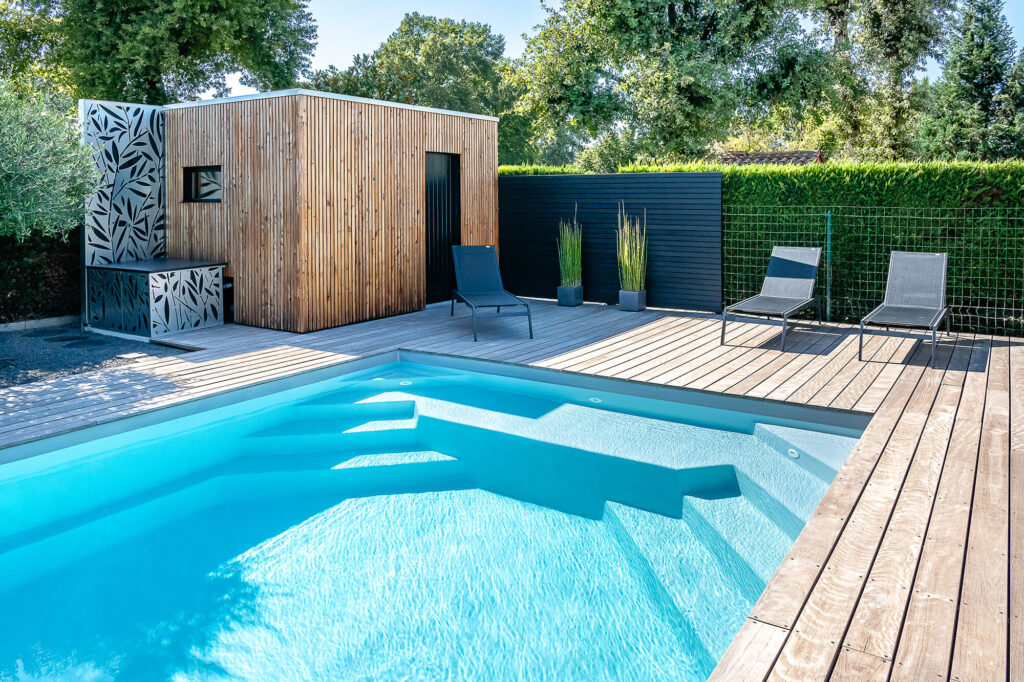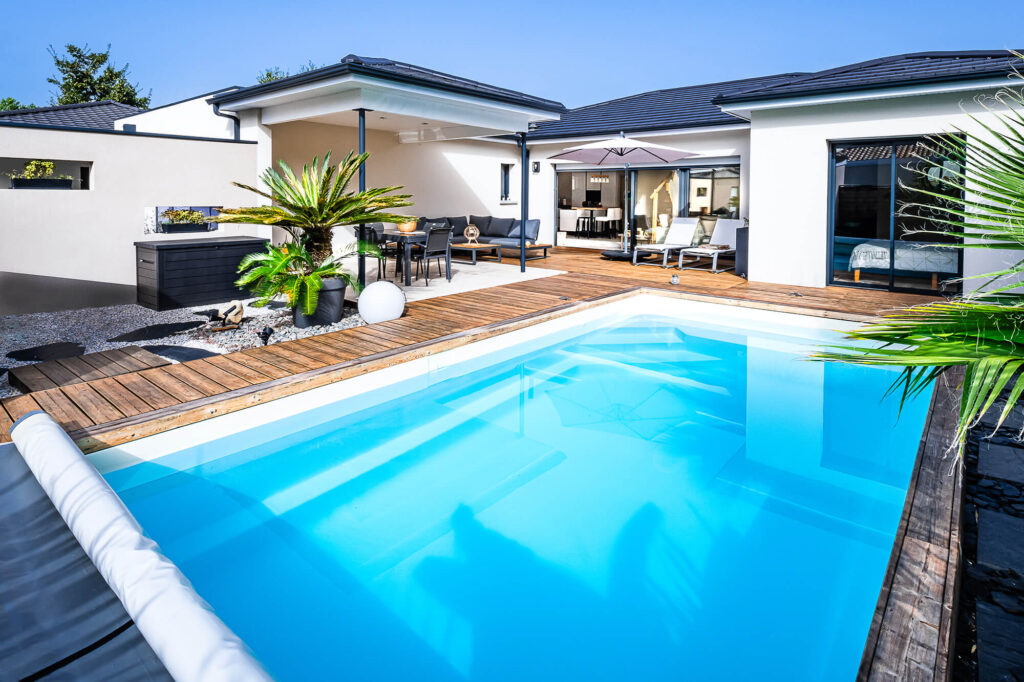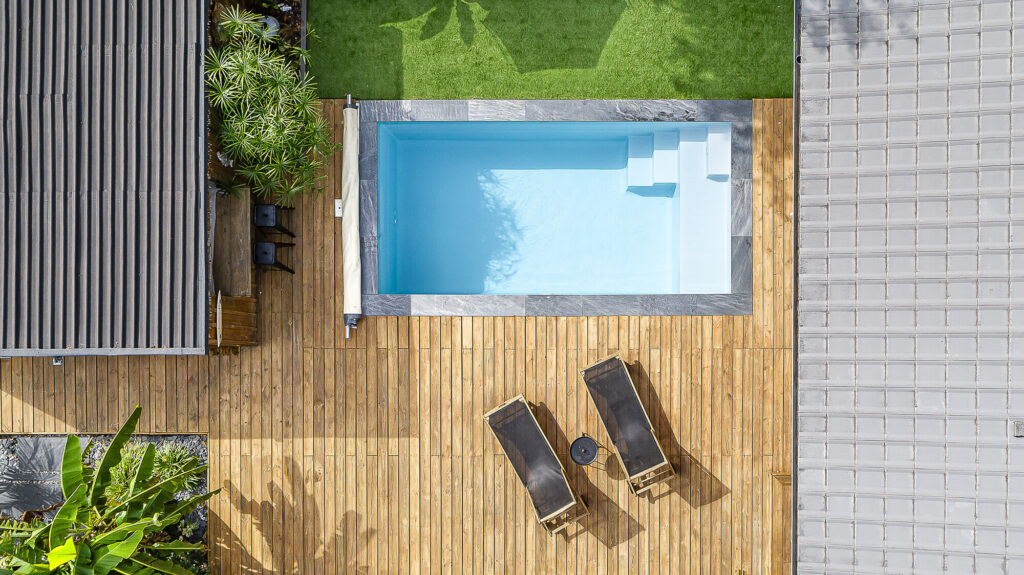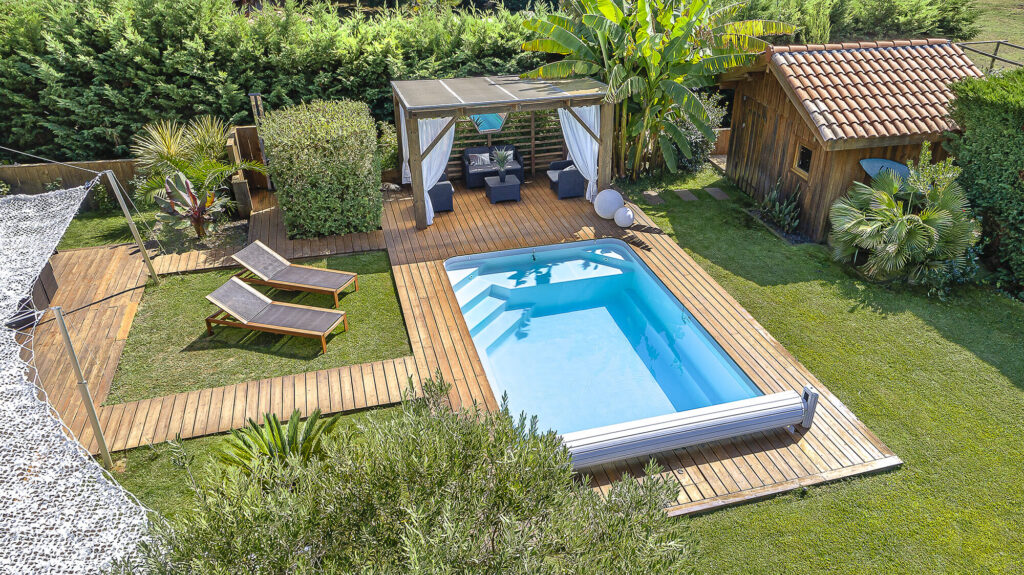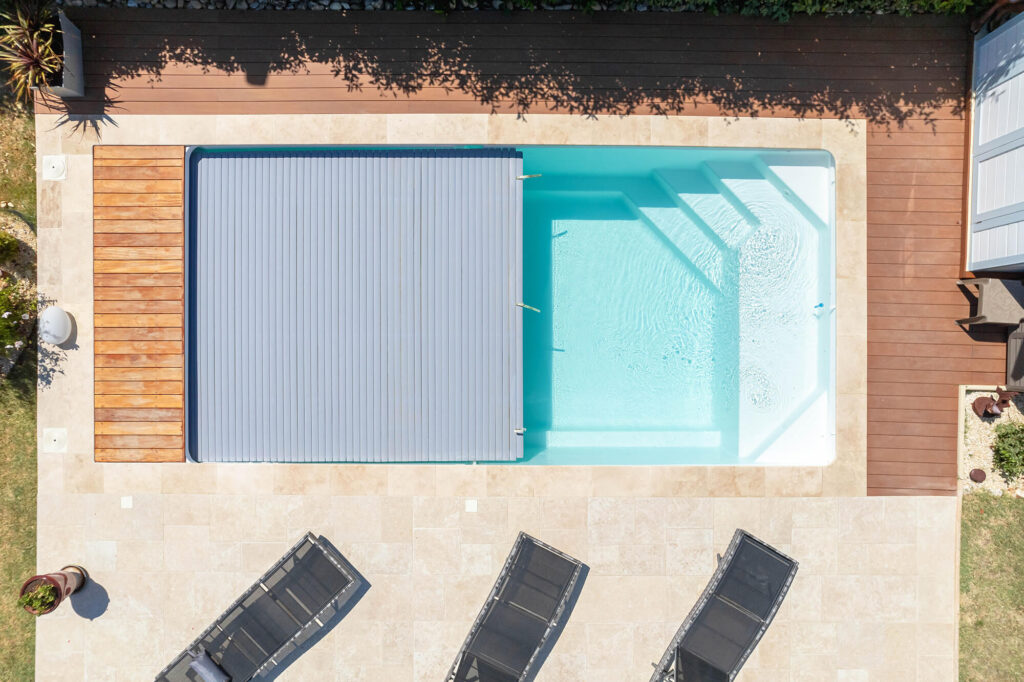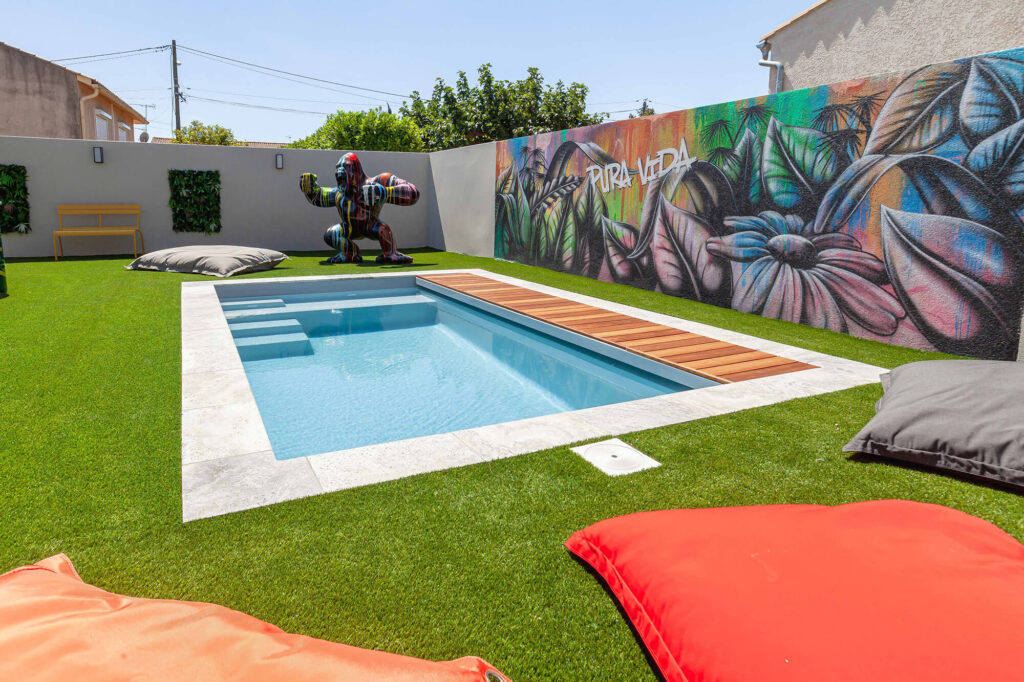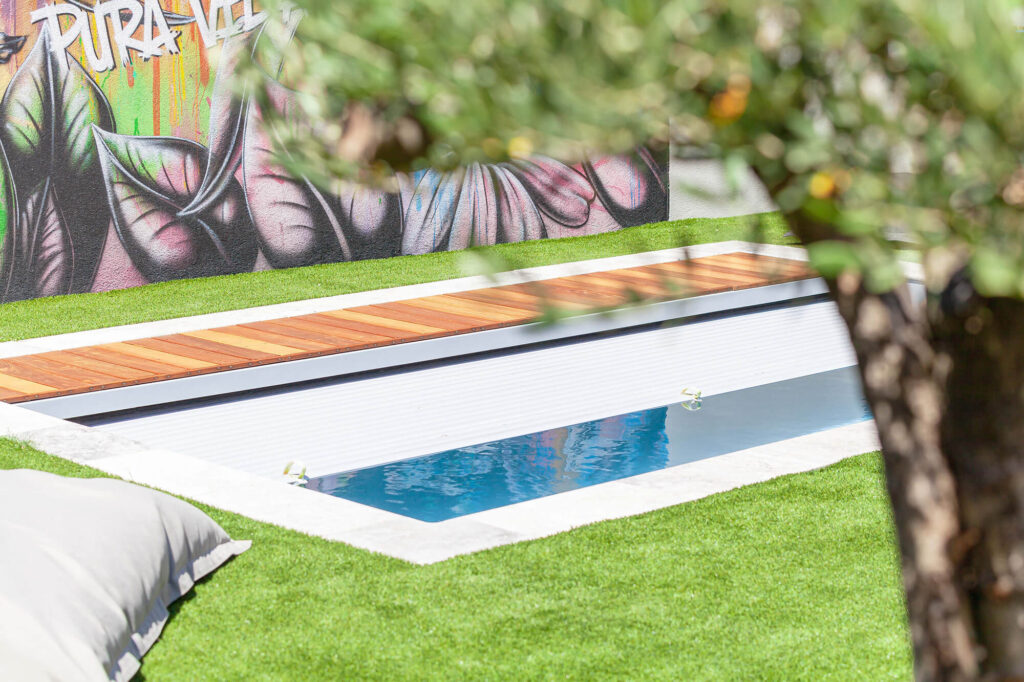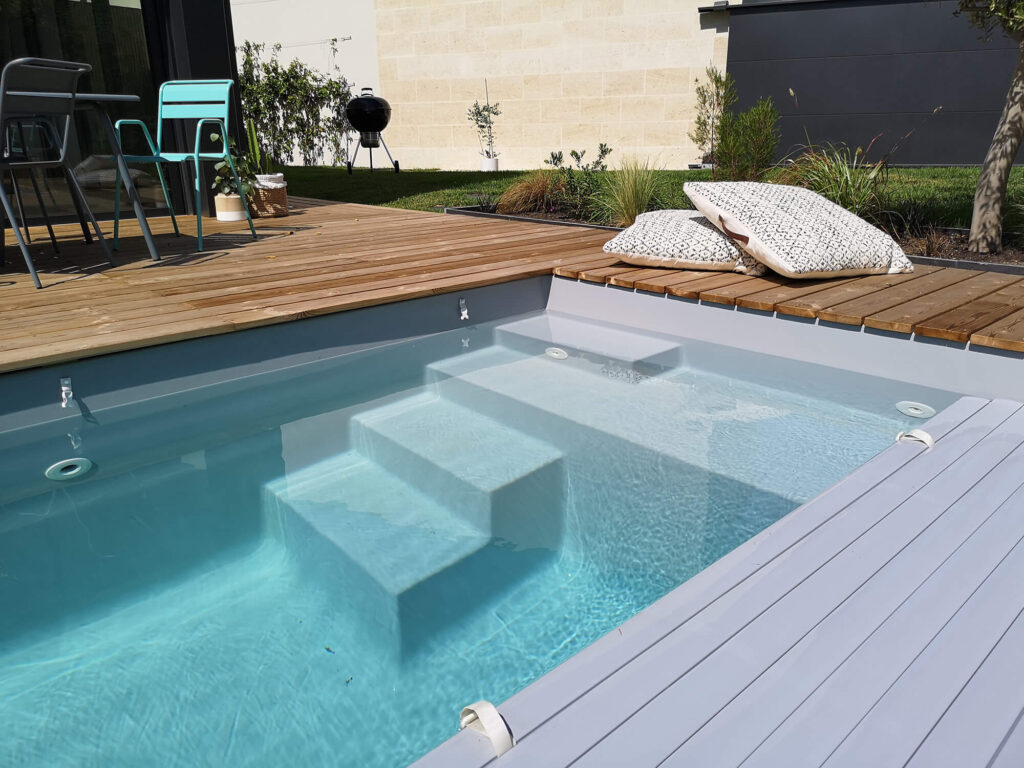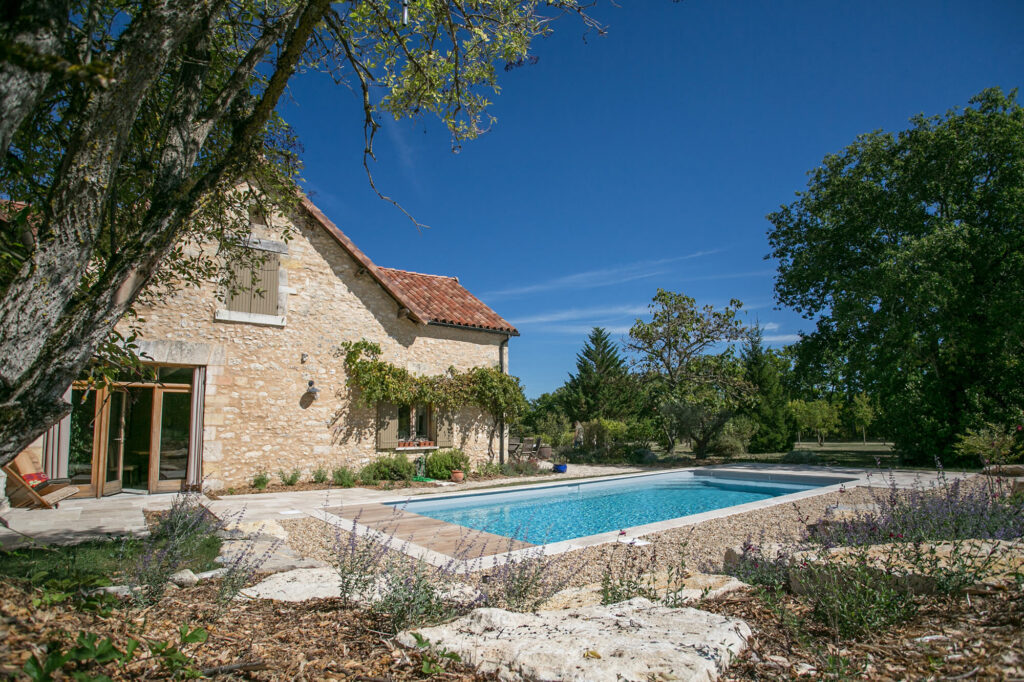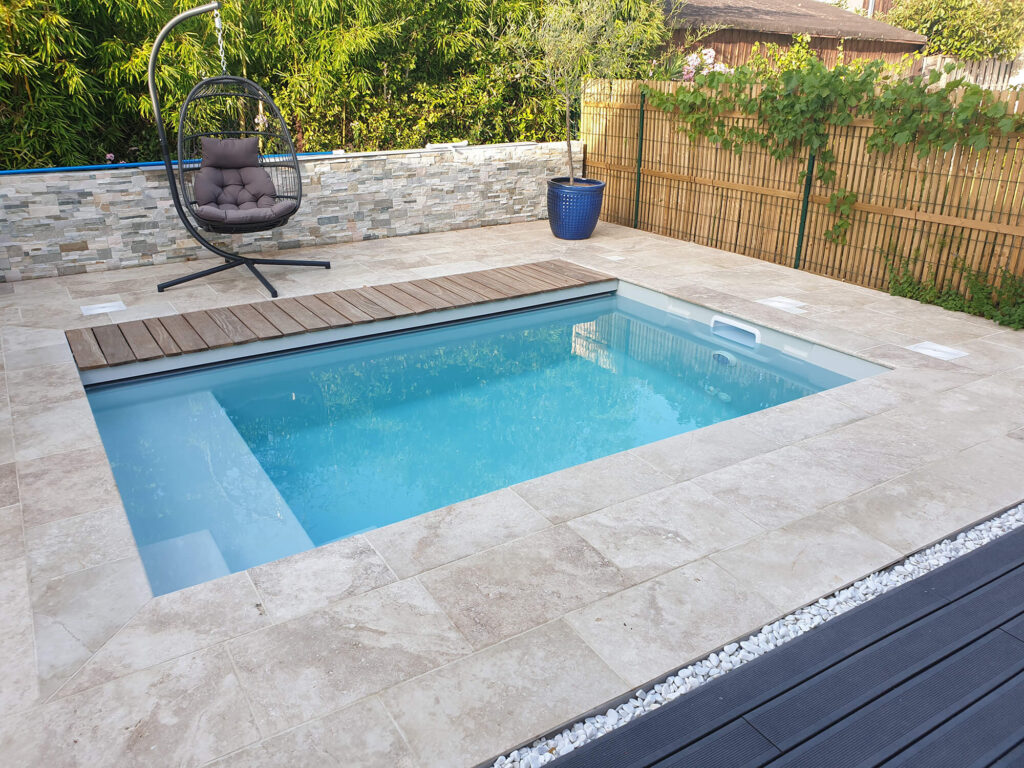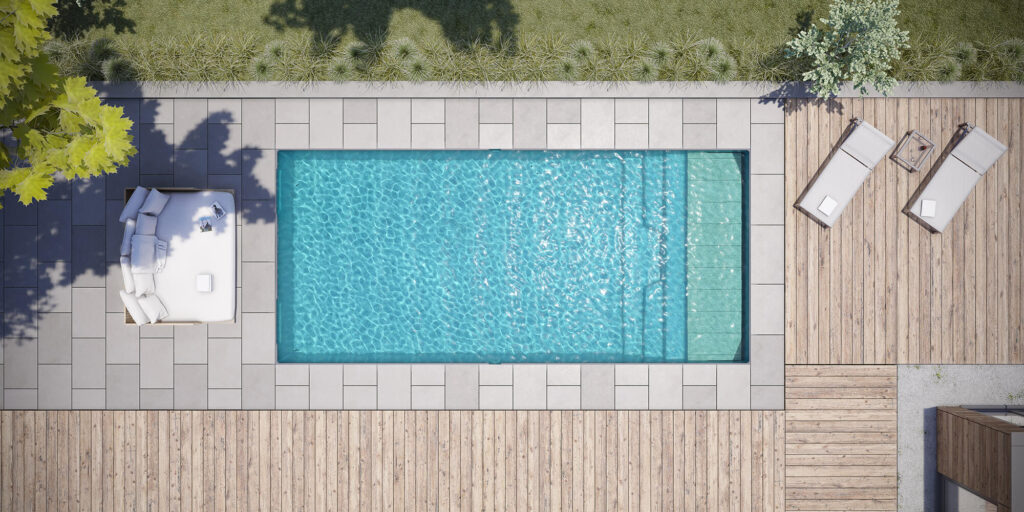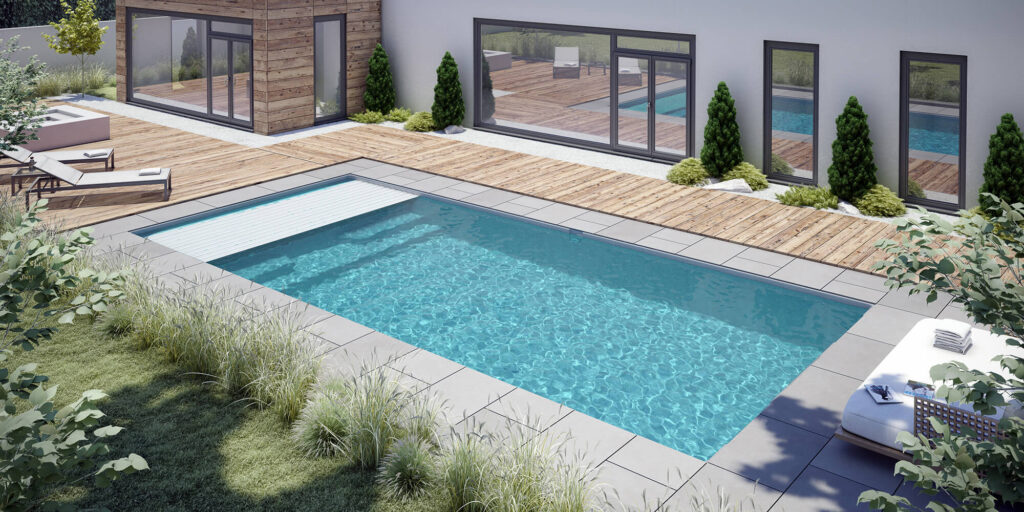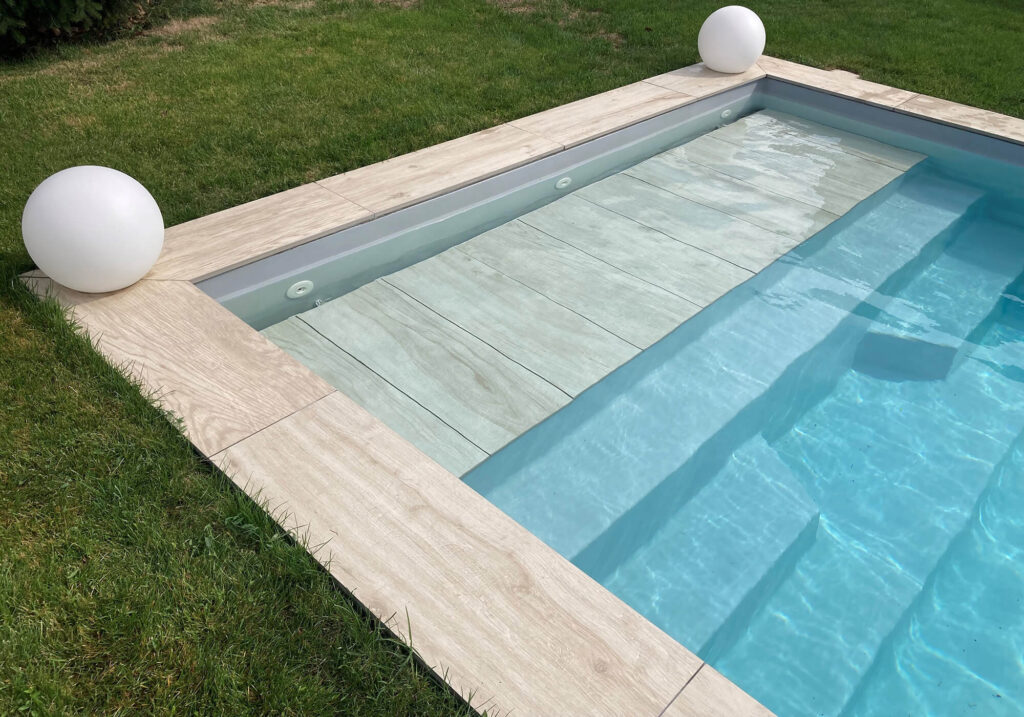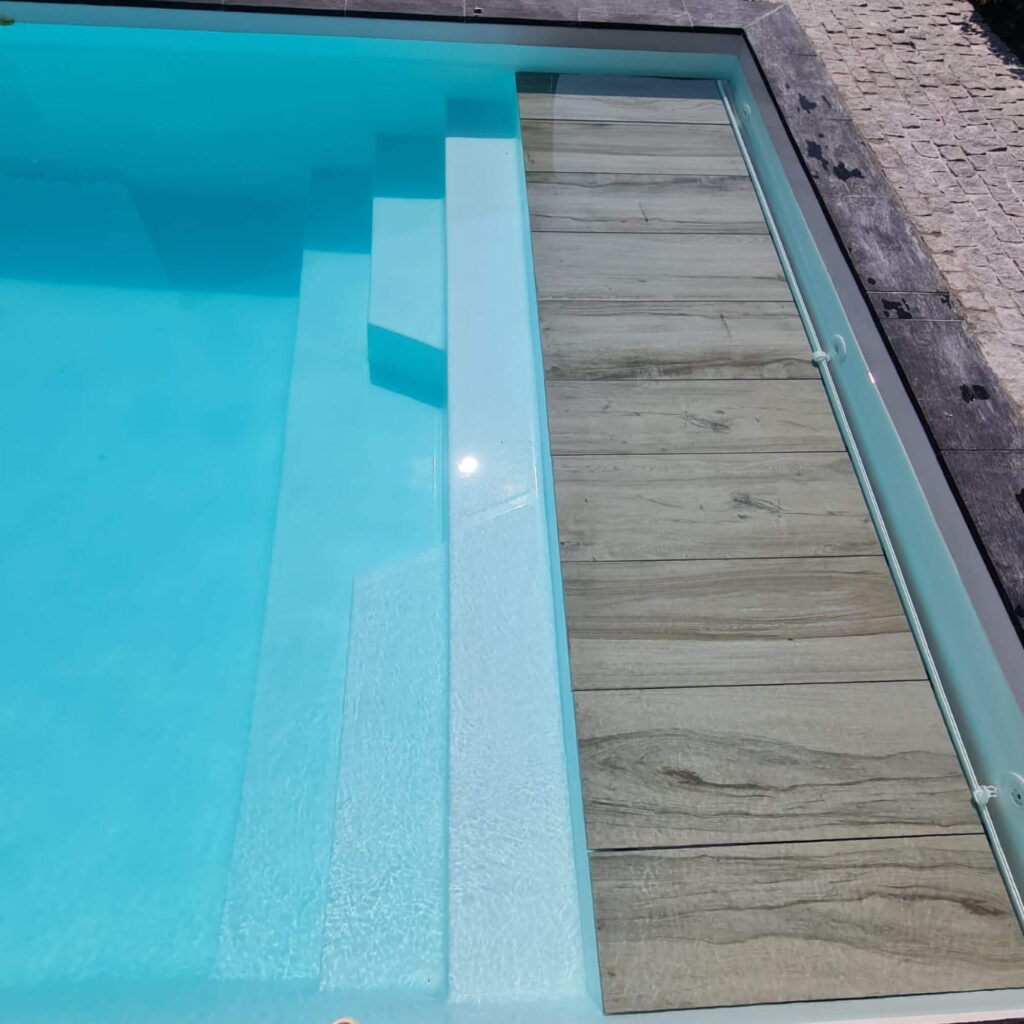Plus que jamais à la mode, la piscine naturelle met en avant toute la beauté de la nature. Il s’agit d’une piscine naturelle reprenant le principe du lagunage. Le principe est de faire passer les eaux par écoulement gravitaire dans une succession de bassins où le métabolisme des organismes (bactéries, végétaux, etc.) assure la dépollution des eaux (phytoremédiation) tandis que substrat et végétaux se chargent de la filtration.
En général, la piscine naturelle se divise en 3 zones bien distinctes; la première étant la zone de baignade. La seconde est la zone dite de lagunage, également appelée zone d’épuration ayant pour rôle d’agir comme filtration d’eau et où se placent par ailleurs les plantes. La troisième et dernière zone, la zone de régénération est parfois facultative. Il s’agit en règle générale d’une petite cascade de décoration.
Comment fonctionne une piscine biologique ?
Le concept de la piscine biologique est relativement simple. C’est une piscine traditionnelle, qui a pour objectif de filtrer l’eau de manière totalement naturelle. La piscine écologique a de nombreux atouts considérables sur les aspects esthétiques, écologiques et naturels.
Quels sont les avantages d’une piscine biologique ?
Les atouts d’une piscine biologique sont nombreux.
En première position, son concept écologique est particulièrement estimé. La piscine naturelle proscrit complètement les produits néfastes et chimiques tel que le chlore, très présent dans la majorité des piscines. Cela rend donc la piscine plus saine et plus adaptée aux différents types de peaux. Le non recours au chlore ou à tout autre produit de traitement chimique, permet d’éviter les désagréments que rencontre la majorité des personnes lors d’une baignade dans un bassin qui n’est pas naturel. Ces désagréments ne sont autres que des irritations des yeux, de la gorge, de la muqueuse nasale, des voies respiratoires ou encore de la peau. Par ailleurs, dans certains cas extrêmes, le chlore peut agir comme un déclencheur favorisant l’asthme.
D’autre part, la piscine biologique permet de stabiliser votre consommation d’eau car elle n’est pas équipée d’un système de filtration industriel. En effet, ce sont les plantes qui jouent le rôle de régulateur de filtration de l’eau.
Enfin, les montants d’entretien d’une piscine biologique sont souvent moins onéreux que ceux engagés pour une piscine classique.
Les inconvénients d’une piscine biologique ?
Bien que la piscine biologique soit plus recommandée en termes de santé et design, ce confort de baignade entraîne un certain coût. Elle est plus onéreuse qu’une piscine traditionnelle compte tenu de la nécessité d’aménager 3 zones différentes et de mettre en place un procédé adapté quant à l’oxygénation naturelle. De plus, il est recommandé de maintenir une température inférieure à 25 °C afin de bien veiller à la survie des plantes, acteur indispensable du bon fonctionnement d’une piscine biologique. Par ailleurs, toute utilisation de produits chimiques tels que des lotions ou crèmes solaires est fortement déconseillée lors de la baignade dans une piscine biologique.
Comment faire construire une piscine biologique ?
La pose d’une piscine biologique peut sembler aisée et faisable en autoconstruction. Toutefois, il est fortement recommandé de solliciter un pisciniste ou une entreprise experte dans le domaine. Par ailleurs, si vous vous sentez compétents, chargez-vous des projets de terrassement de la zone de construction. Pour tout ce qui est relatif à la construction du bassin, aux assortiments de plantes aquatiques ainsi qu’à la définition du fonctionnement de l’écosystème, faites appel à un professionnel des piscines biologiques.
Configurez votre piscine en ligne Revenir à toute l'actualité
